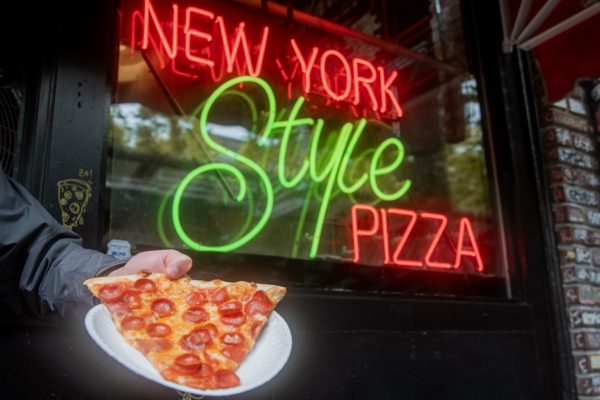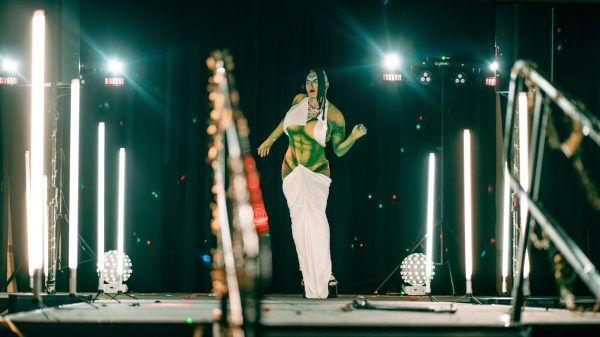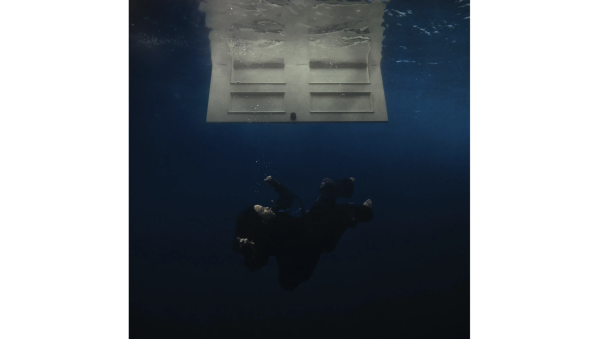Celebrating From Afar During a Socially Distanced Pride Month
Pride celebrations usually take place in massive crowds and huge parades in celebration of the LGBTQ+ community. This year, social distancing measures in place due to COVID-19 will change the way that Pride Month looks across the country. The month of June is dedicated to Pride, and many states that usually hold events will not lift their stay-at-home orders in time to celebrate publicly. So, with a changing landscape of celebration, what will pride look like this year?
Steve Taylor, board member of the European Pride Organizers Association (EPOA), told Vox that 280 Pride celebrations have been canceled or postponed around the world. However, Pride organizers are saying despite format changes, Pride will go on this year.
The EPOA and InterPride, two organizations committed to “tying pride together globally,” are organizing an exclusively online, worldwide Pride event in place of in-person celebrations. According to Vox, the plan is to hold a 24-hour Global Pride online on the anniversary of the Stonewall Riots, June 27.
Sophie Hughes, an American Musical and Dramatic Academy first-year studying musical theatre, has returned home after spending her first year of college in New York. Hughes and her friends still have found ways to celebrate Pride and encourage those struggling to find community to “hang in there.”
“I hadn’t heard about virtual pride. It kind of sounds like we’re just making the best of our circumstances, which is what this entire thing has kind of been,” Hughes said. “I think the real spirit of Pride is just celebrating who you are, what you are, and how you express yourself in any way, and that doesn’t always have to be with people.”
Timothy Chamblee, an incoming fashion design major at the School of the Art Institute of Chicago, is disappointed, but understands that Pride must be canceled this year.
“It’s definitely really strange. For me, Pride has been something I’ve gone to so much and it’s so important to me, and to not have it, especially the last year that I’m in Durango,definitely sucks—but it makes sense during the virus, so I’m not totally upset,” Chamblee said.
Without large gatherings, Chamblee encourages all supporters to educate themselves on the origins of Pride and to donate if able—specifically to black, intersectional, queer and LGBTQ+ charities.
“I’m lucky to have a close community of people around me where I can still celebrate Pride and still be proud of who I am, but I think in these times of unknown, it’s important to research Pride, watch things that are about culture, remember where we came from and what Pride means for us,” Chamblee said.
For those who are discouraged and in need of community, or may be uncomfortable at home or because of the fact that they can’t gather for Pride, there are ways to gather while quarantined.
“I personally know how hard that is, going back to your family or just being trapped 24/7 and not being able to express your sexuality. Having pride, this event is where you’re able to actually express yourself and find community,” Hughes said. “Personally, I do feel discouraged, but I know this isn’t a permanent problem. Everyone is sacrificing a lot, and we’re going to have to continue sacrificing.”
The internet is playing a vital role in Pride this year, and Hughes thinks that can also be a tool in finding community.
“I know that virtual pride isn’t the same thing as real pride,” Hughes said. “[The internet]’s how a lot of people came to accept themselves, thier sexualities and their gender identities. The internet has always played a really big role in the gay community.”
COVID-19 has uniquely affected the LGBTQ community and their employment. With night life gone during quarantine, the effects on the entertainment industry and sex work have taken an unfortunate hit. Chamblee noted that jobs typically in high demand are not available right now, and a lot of those jobs are worked by LGBTQ+ people.
“It’s really hard because a lot of queer people and LGBTQ+ people definitely have jobs in night life. Quarantine is ruining that for a lot of people, drag queens don’t have work, people who work in bars don’t have work,” Chamblee said. “It’s upsetting to see a lot of these queens and people who work in these clubs not have access to a stable job.”
Even with HIV antibody tests becoming more prevalent, some discriminatory practices are still present when it comes to gay men donating blood. For years, gay men have been turned away from blood donation because of HIV/AIDS stigmatization.
Before COVID-19, the FDA insisted men wait one year before donating plasma after having sex with another man. Due to COVID-19, they now only have to wait three months. However, activists argue that this time the mandatory wait time is still founded in prejudice, not science.
Comparisons between COVID-19 and the AIDS epidemic are also circulating, specifically about the government’s response to each health crisis. Some commentators claimed the mishandling between the Reagan administration and the Trump administration were comparable, according to The Washington Post. Hughes, however, said the comparison of any two tragedies is not productive.
“The particular problem with that is that people started paying attention to COVID when it started affecting the privileged. Once it started affecting Europe, white people and America,” Hughes said. “When COVID-19 was in China, they didn’t care and I think that’s similar to the AIDS crisis. No one cared until it started affecting the majority population, the heterosexual population.”
Pride will be celebrated no matter the circumstances, and although finding community while isolated can be a difficult task, the LGBTQ online presence is working to bring people together all month long. COVID-19 has influenced the celebration, but will not end it.









